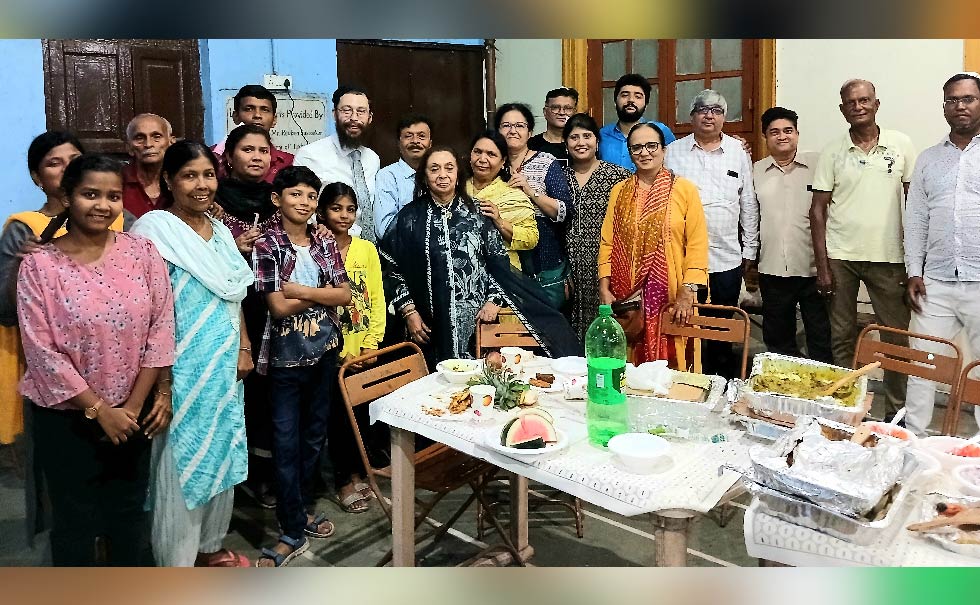Parshat Chayei Sarah
In the Parsha of Chayei Sarah we encounter a range of interesting ideas with profound psychological implications:
The eulogizing of Sarah and remarriage of Abraham occur in the same Parsha, although it is implied that some degree of time passed between these events.
Izhak likewise, also is consoled after the death of his mother through his own marriage.
The first statements of Rashi in our Parsha give us further insight into the nature of condolence and mourning based on the first verse:
א
וַיִּֽהְיוּ֙ חַיֵּ֣י שָׂרָ֔ה מֵאָ֥ה שָׁנָ֛ה וְעֶשְׂרִ֥ים שָׁנָ֖ה וְשֶׁ֣בַע שָׁנִ֑ים שְׁנֵ֖י חַיֵּ֥י שָׂרָֽה:
And the life of Sarah was one hundred years and twenty years and seven years; [these were] the years of the life of Sarah.
Rashi comments:
ויהיו חיי שרה מאה שנה ועשרים שנה ושבע שנים: לכך נכתב שנה בכל כלל וכלל, לומר לך שכל אחד נדרש לעצמו, בת מאה כבת עשרים לחטא, מה בת עשרים לא חטאה, שהרי אינה בת עונשין, אף בת מאה בלא חטא, ובת עשרים כבת שבע ליופי:
“And the life of Sarah was one hundred (years) and twenty (years) and seven years:
The reason (given in our tradition/Mesorah) that the word “years” was written after every number is to tell you that every digit is to be expounded upon individually (for a Drash):
” when she was one hundred years old, she was like a twenty-year-old regarding sin. Just as a twenty-year-old has not sinned, because she is not liable for punishment, so too when she was one hundred years old, she was innocent. And when she was twenty, she was like a seven-year-old in regards to beauty”. — [Bereshit Rabbah 58:1]”
In our memorials and condolences, we always focus on the goodness of the person and overlook the major negative instances – in death, we make our focus on positivity.
Rashi goes further:
שני חיי שרה: כלן שוין לטובה:
“The years of the life of Sarah: All of them equally (for) good.”
Surely Rashi cannot equate all the years of Sarah life to be equally good in a literal sense since it would overlook the various times she was kidnapped, the emotional difficulties in regards to her inability to have children, the usurping of her marital status by her servant Hagar and various tests in terms of travel and life.
Rather we choose to paint a rose-tinted version of people’s lives once they have passed – and rightly so, the humans whose lives we remember in their passing are preserved through the memory of their best moments.
Neither Abraham nor Itzhak was consoled from the terrible loss of Sarah Imanu until they married – since it is impossible to be consoled from the loss of life until the potential for new life and experience is available.
No matter how deeply we feel a loss and mourn the passing of an individual, our Torah urges us to focus on moving forward and on the new life and experience that are still present, possible, and achievable in our world.
It is remarkably easy to be caught up in a profound loss whose effects echo for decades, even centuries, and from these cults of personality, worship is formed; more often, to humanity’s detriment.
The Torah’s message is that life ultimately continues regardless and that we are called to celebrate and to rejoice again once the appropriate time for mourning and healing has transpired.
We call our Parsha: חַיֵּ֣י שָׂרָ֔ה – the life of Sarah. Her death is certainly not the focus of the Parsha in terms of concentration of verses, her message and vitality were the focal inspiration for those whom she taught and brought to Monotheism. Her life whilst ending here in this chapter of the Tanach has an influence that reaches us today in her example of faith against the greatest odds.
Before Abraham sent out his servant Eliezer to seek a wife for Itzhak he cautioned him saying (24:3):
And I will make you swear by Hashem, the God of heaven, and the God of the earth, that you will not take a wife for my son from the daughters of the Canaanites, in whose midst I dwell.
וְאַשְׁבִּ֣יעֲךָ֔ בַּֽיהֹוָה֙ אֱלֹהֵ֣י הַשָּׁמַ֔יִם וֵֽאלֹהֵ֖י הָאָ֑רֶץ אֲשֶׁ֨ר לֹֽא־תִקַּ֤ח אִשָּׁה֙ לִבְנִ֔י מִבְּנוֹת֙ הַכְּנַֽעֲנִ֔י אֲשֶׁ֥ר אָֽנֹכִ֖י יוֹשֵׁ֥ב בְּקִרְבּֽוֹ:
But you shall go to my land and to my birthplace, and you shall take a wife for my son, for Itzhak.”
ד כִּ֧י אֶל־אַרְצִ֛י וְאֶל־מֽוֹלַדְתִּ֖י תֵּלֵ֑ךְ וְלָֽקַחְתָּ֥ אִשָּׁ֖ה לִבְנִ֥י לְיִצְחָֽק:
Whilst the plain (Pshat) meaning is simply to take a wife from Haran/Ur Kasdim rather than the local Canaanites who worshipped idols and gods other than Hashem, the perhaps more subtle lesson is that Eliezer went in search of a partner for Itzhak whose character traits resembled the good qualities of his mother – perhaps this is one reason that the test of Rachel was totally dependent on loving-kindness.
In this aspect, we truly live beyond our own lives into not only the next generation but into our people as a whole – with the desirable character traits we instill and set as examples that stand eternally and that we shall be remembered for.
– Rabbi Jonathan Francis Goldschmidt ©




